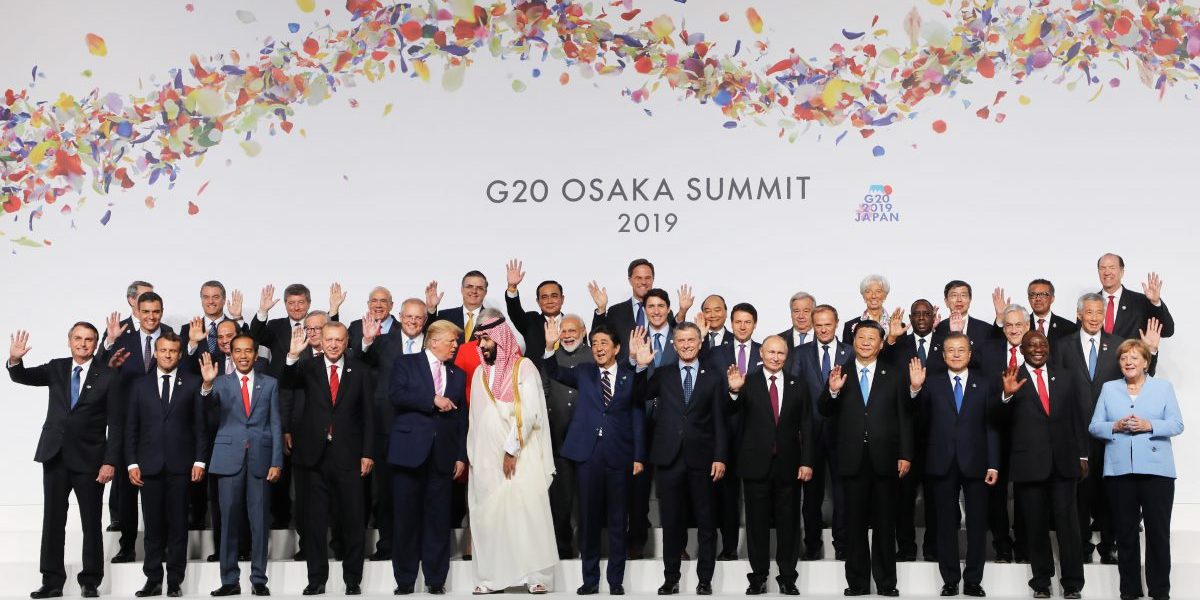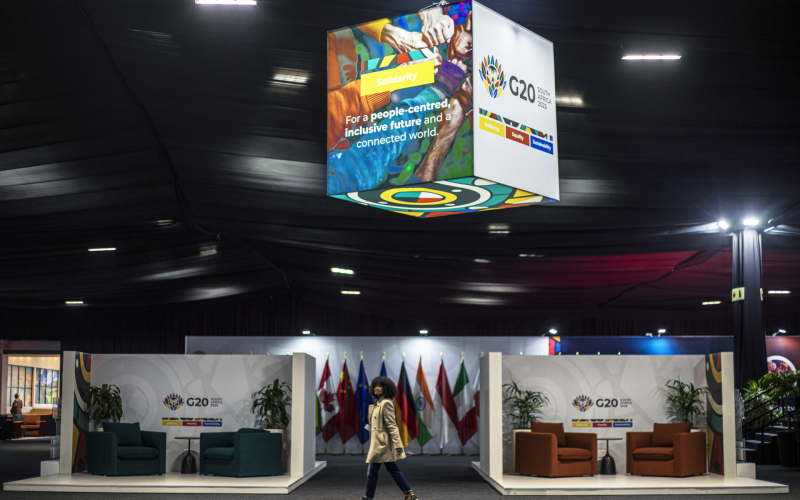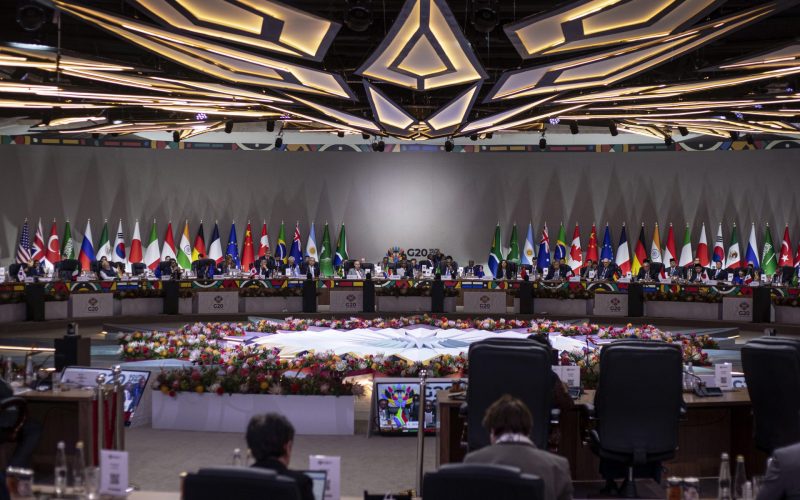The G20 met for the first time at the level of heads of state and government in Washington, DC, on 15 November 2008 in the midst of the most serious financial crisis since the Great Depression of the 1930s. What was previously an informal and technically-oriented meeting of finance ministers and central bank governors from economically significant countries, the G20 took on, under these precipitous conditions, a high-profile leader-oriented format intended to tackle a global crisis.
At their subsequent summits in London (April 2009) and Pittsburgh (September 2009), the G20 exhibited an impressive degree of solidarity. Galvanised by the shocks of the global financial crisis, participants were able to agree on jointly initiating measures to calm down international financial markets, implementing large domestic fiscal stimulus packages, strengthening the crisis response of international financial institutions and setting in place a mechanism for mutual assessment of member countries’ economic policies. These steps are credited with helping to contain the financial crisis.
Despite the pivotal role the G20 played during the initial stage of the global financial crisis, however, concerns were raised about a wide number of issues regarding the nature and implications of the G20 for global governance. Unlike the established institutional pillars, the G20 operated on the basis of an informal club summit process.
A self-selective body in terms of membership, the composition of the G20 and the arbitrary nature of the selection of its members came under intense scrutiny.[1] On top of concerns regarding legitimacy, most notably with respect to a potential rivalry between the G20 and the United Nations (UN) on economic policy issues, the effectiveness of the G20 was also called into question once the first cracks appeared between the European Union (EU) and the other G20 members, and in particular the United States (US), regarding the response to the Euro crisis.
In contrast to the commonalities punctuating collective action in the early stages, the G20 ten years on is no longer dealing with an immediate (financial) crisis, but rather with an (underlying) systemic crisis.[2] The club grouping – at least according to a variety of social forces – is expected to address structural economic and ecological problems as well as a wider set of environmental and social crises on various levels. These different crises range from the threat of dangerous global climate change to questioning the benefits of global trade flows. According to this wave of criticism, a major shortcoming of the G20 has been its lack of ability and/or will to tackle these and other systemic challenges.
There was also a backlash against the ethos of placing cooperation before the sovereignty of nation states; a political zeitgeist challenged rules-based multilateralism. Public opinion and governments in some major G20 countries, for instance, nurture a fundamental unease with economic globalisation and international solidarity, fuelled by increasing socio-economic inequalities within countries and resulting populist pressures. When attitudes as expressed by the slogan ‘my country first’ gain ground within key states of the G20, critics claim that this club does not – and cannot – work for the greater, global common good.
The legitimacy of the G20 is questioned both from within, by its member countries, and also from without, by non-G20 countries, given the potential system-wide effects of G20 policy decisions. Beyond those states represented at the top table, the G20 is therefore facing a societal backlash that is questioning its basic premise of existence, potentially cutting into the incentives of governments to support cooperative activities going forward.
Standing back from this significant but increasingly unsettled record of G20 summitry, this special issue allows reflection that stands in contrast to the instant analysis that occurred amid the 2008 crisis,[3] with various works assessing the evolving role of the G20, exploring its longer-term benefits and limitations, and probing where it is moving.
Questions in need of recalibrated academic research abound: Are the mechanisms of cooperation serving the established purpose, ie, do they enable collective action of the right kind, and by the best actors? Are the right topics adequately addressed? And have the mechanisms and topics changed over time, possibly adjusting to changes in the global context? Existing structures of global governance, not least the UN or the World Trade Organization (WTO), are in protracted discussions on how to reform in order to be more efficient and effective, while better reflecting current power structures. Are the G20 processes assisting global adjustments or, rather, are they creating diversions with inadequate value added to existing structures?
The special issue also offers an opportunity to re-evaluate the role of ‘developing’ countries within the G20. The fraying of the old order has made more pertinent discussions on how to manage global issues beyond the traditional and somewhat persistent G7 establishment. How do rising powers view the G20 and what has been their impact on the development of the forum? The G20 has been successful in drawing together key members from beyond the G7 into an integrated forum. Yet, as illustrated by the emergence of the BRICS, rising powers have established other summit processes beyond the G20. Similarly, the G7 has persisted as a distinct setting when some expected this forum to wither away. This can also be read as a continued desire – notwithstanding all their own differences – to meet without the presence of rising powers.
The ambivalence of established and rising powers about the broader G20 setting can be contrasted in turn with the strong level of support for the G20 provided by middle powers beyond both the G7 and BRICS.
A decade into its existence, the G20 thus faces fundamental questions about the benefits it offers to its members and the overall system, as well as limitations of its institutional set-up and the future of global club governance. Where is the G20 contributing towards improving, or providing possible fixes for, global governance? How can the G20 model of club governance offer alternative settings with less formal and yet still legitimised activities? With whom should the G20 or groupings such as the BRICS or the G7 engage – and in what manner over which issues?
Recent G20-related scholarship has taken an appreciable turn towards both a deeper issue-specific focus [4] as well as interest beyond the core components of the state-based summit processes. With these trends in mind, it is salient that the Think 20 has emerged as a key network focused on providing empirically-based policy recommendations on pertinent issues on the G20 agenda.
Complementing this issue-specific research, this special issue focuses on the shifting dynamics of the institutional aspects of the G20. In doing so, the existing literature is built on but also stretched out in a distinctive fashion. Reflective of the need not only to address the G20’s potential to widen its agenda, the special issue aims as well to bring together diverse informed perspectives from the global South and North: the aim is to allow a comprehensive analysis of not only the institutional evolution, but also the social purpose of global club governance as exhibited by more than 10 years of G20 summitry.
Access the special journal issue online.
Footnotes:
[1] Slaughter S (ed.), The G20 and International Theory: Perspectives on Global Summitry. Cheltenham: Edward Elgar, 2019.
[2] Berger, S, J Leininger & D Messner, ‘The G20 in 2017: Born in a financial crisis—lost in a global crisis?’, Global Summitry, 3, 2, 2017, pp. 110–23.
[3] The contributions of this special issue have been presented and discussed during the conference ‘The G20 @ 10 conference: Assessing the benefits, limitations and the future of global club governance in turbulent times’, 23 and 24 October 2018 in Bonn, organised by the German Development Institute/Deutsches Institut für Entwicklungspolitik (DIE), together with Chatham House and the Shanghai Institutes for International Studies (SIIS).
[4] See for example Kathuria R & P Kukreja (eds.), 20 Years of G20. From Global Cooperation to Building Consensus. Singapore: Singapore Springer, 2019.








